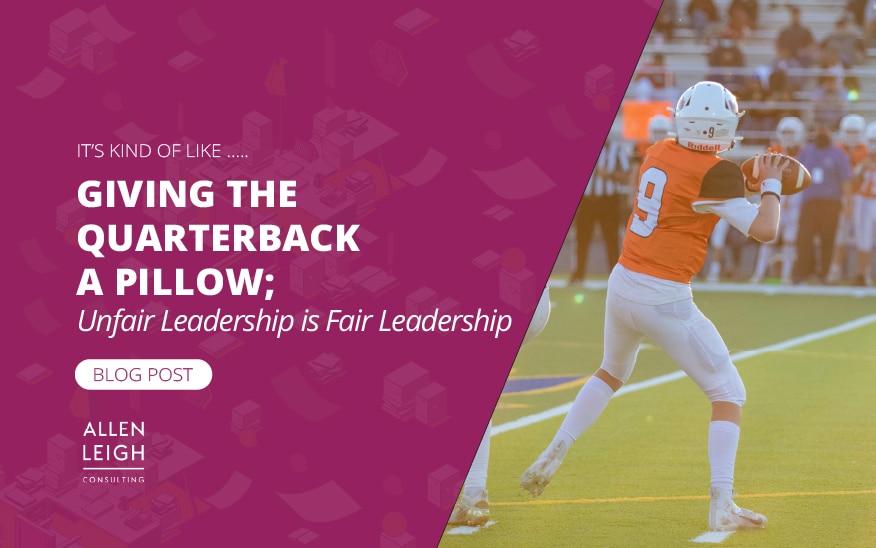Unfair Leadership is Fair Leadership
Not all talent will contribute equally or consistently to the group’s objectives. We all experience periods of good and poor health, and it is important to provide space and compassion for these occasional times of life.
It is equally unrealistic to expect that everyone on your team will be A-level players. Of course, this would be nice, but you likely don’t have the budget, time, or perks to attract all your talent to this level. That said, a team of full-A players can also be challenging, as although they might be amazing individual players, not all A-level talent is good at playing in teams.
Given this reality, it might be tempting to feel pressured to enforce all expectations and constrictions equally across the team based on corporate policy or business culture. At the same time, it might be equally surprising that some of your average-level talent demand the same level of freedom and flexibility that you offer your top players.
A Story, ‘Give the Quarterback a Pillow’
I liken this scenario to the story “Give the Quarterback a Pillow.” To illustrate the concept that unfair leadership is fair leadership, a workshop participant once shared a story from the NFL that captured this concept perfectly.
Apparently, during a half-time break, one of the defensive linesmen fell asleep, and the coach immediately fired him on the spot. After the game, the media challenged the coach’s decision and asked, “What if it was your star quarterback?”
Without even a moment of hesitation, the coach replied, “I would give him a pillow,” not even seeing how these two scenarios would be remotely similar.
Building High-Performance Teams with ‘Unfair’ Leadership
In building high-performance teams, there will ultimately be periods when certain individuals perform at higher levels than others. In these periods, it is critical to stay close to these performers but also provide them with some grace and greater flexibility and freedom in how they perform their work. Others on the team might critique your leadership as unfair, and they are right. It might be unfair, but it doesn’t mean that it is wrong.
The key here is that this is only for some time, as there will always be ebbs and flows to individual contributions. No one has ever been an all-star player.
Key Takeaways
- Who are your star players on the team? Are you providing them with the space and flexibility for them to perform well, or are you tempted to treat them under the same constraints as the others?
- What about your less-than-great players? Are they seeing that higher contribution and participation come with greater levels, and are you managing them in a way that provides them with constructive insights to give them the best chance of improving?
- Not having tough conversations or doing the hard things can have the worst long-term impact on culture. Where might you need a more frank and honest conversation this week?



